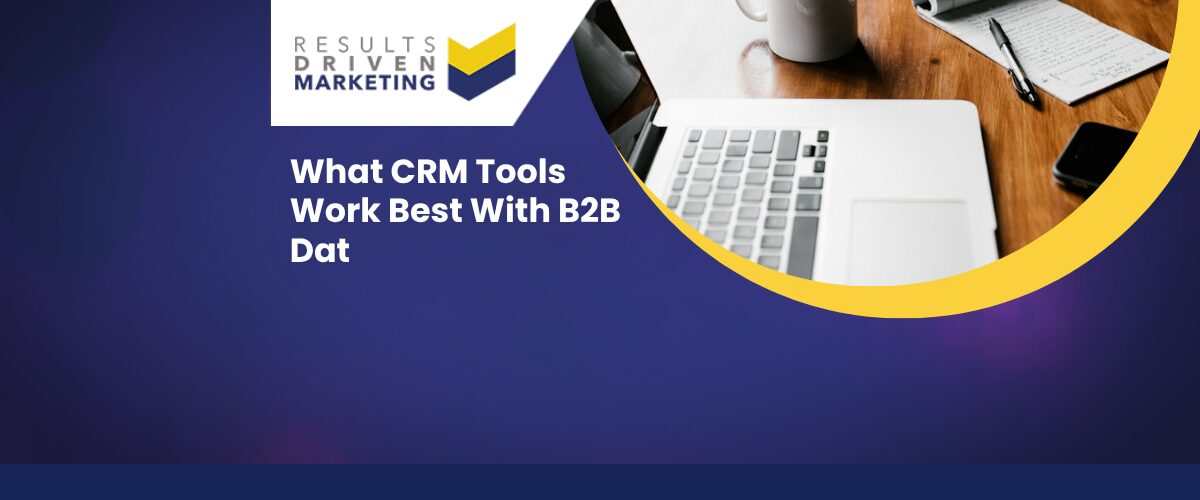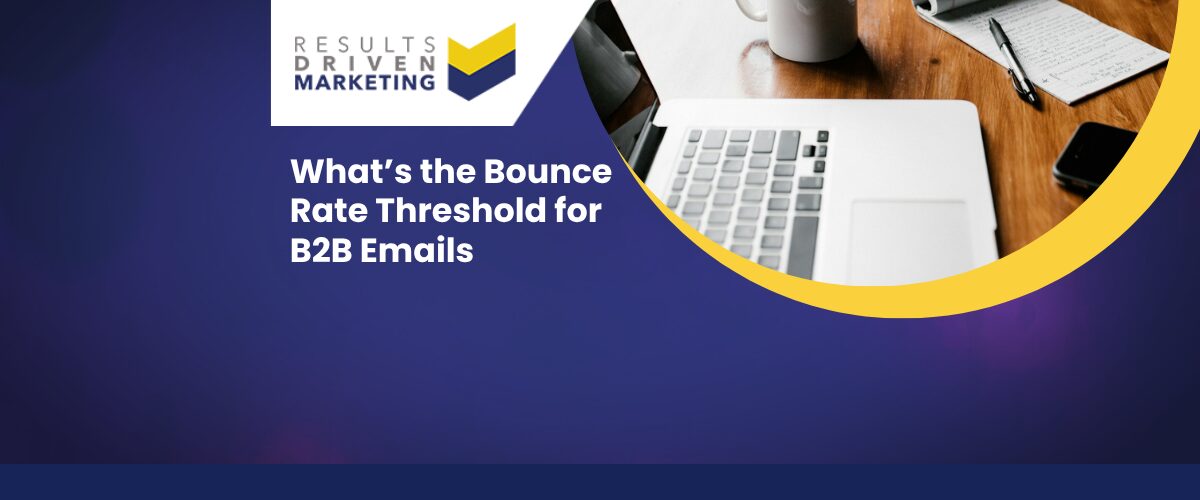
What CRM Tools Work Best With B2B Dat
What CRM tools work best with B2B data? It’s a common question for UK business owners, sales directors, and marketers who invest in purchased marketing lists to drive growth. You might have accurate data in hand, but if your CRM can’t handle it properly—whether that’s importing, segmenting, or integrating it into your outreach—it’s hard to see results.
Many SMEs hit this wall: they buy quality data, but their CRM holds them back. Clunky imports, missing fields, poor segmentation options… it all adds up to wasted time and missed opportunities.
In this post, we’ll help you cut through the noise. You’ll learn what features matter most in a CRM when working with third-party data, what pitfalls to avoid, and how to make sure your CRM supports your sales and marketing goals—not blocks them. Whether you’re running cold email campaigns, telemarketing, or direct mail, this guide will help you get more value from your CRM and your data.
Table of contents:
Why Your CRM Choice Matters When Using Purchased B2B Data
What CRM tools work best with B2B data depends heavily on how that data is handled once it lands in your system. Many CRMs aren’t built with purchased lists in mind—which leads to friction right from the start.
Here’s why your CRM setup makes or breaks your campaign:
-
Import headaches: Some CRMs restrict imports or force you to clean every field manually. That’s time your team could be spending on outreach.
-
Segmentation struggles: Without the ability to filter by sector, job title, or region, your message lands in the wrong inbox—or gets ignored.
-
Compliance risks: UK businesses must account for GDPR and CTPS. If your CRM can’t help track or flag this, you risk fines or wasted effort.
-
Broken workflows: If your CRM doesn’t connect easily with your email platform, dialler, or mailing process, campaigns stall before they start.
The right CRM should support—not sabotage—your efforts. Let’s look at what features make the biggest difference.
Key Features to Look for in a CRM for B2B Marketing Lists
What CRM tools work best with B2B data isn’t about flashy dashboards—it’s about functionality that helps you act on your data quickly, accurately, and compliantly. Here’s what to prioritise:
Easy Data Import and Mapping
-
Importing from Excel or CSV should be fast and flexible
-
Look for field mapping tools to match your list (e.g. job title, company size, region)
-
Ability to save import templates saves time on repeat campaigns
Advanced Segmentation Capabilities
-
Drill down by sector, job role, company turnover, geography
-
Tag contacts by campaign, interest level, or response
-
Create dynamic lists based on behaviour or profile
Compliance Tools (GDPR & CTPS Awareness)
-
Custom fields to track data source, opt-out status, or CTPS checked flag
-
Ability to filter out non-contactable records before campaigns
Outreach Integration (Email, Phone, Direct Mail)
-
Email templates and campaign tracking built in
-
Phone integration for telemarketing teams or call task scheduling
-
Export tools for direct mail merge or fulfilment systems
Reporting and ROI Tracking
-
Clear performance stats by list, source, or campaign
-
Pipeline tracking to link outreach to revenue
-
Team activity reports to ensure follow-up and consistency
The best CRM for your team will support these features in a way that fits your workflow and outreach channels. Next, we’ll look at the pros and cons of some common CRM types without promoting specific brands.
Pros and Cons of Popular CRMs for B2B Data Users
What CRM tools work best with B2B data will vary depending on your team size, sales process, and outreach style. Here’s a high-level look at the common types of CRMs UK SMEs use—and how they typically perform with purchased marketing lists.
CRM A – Best for Sales Teams Needing Call Integration
Pros:
-
Strong telephony features for outbound calling
-
Easy to assign leads and track calls
-
Good for small sales teams working phone-first
Cons:
-
Limited segmentation tools
-
Often lacks advanced email or marketing automation
CRM B – Better for Complex Segmentation and Custom Fields
Pros:
-
Excellent filtering by sector, job title, region etc.
-
Flexible tagging and list creation
-
Strong fit for data-heavy campaigns
Cons:
-
Can be overly complex for small teams
-
Slower to set up and onboard
CRM C – Good for Email Automation and Simplicity
Pros:
-
Built-in email campaigns and autoresponders
-
Clean interface, fast to learn
-
Ideal for solo marketers or micro-businesses
Cons:
-
May struggle with large or segmented lists
-
Limited phone or direct mail support
The goal isn’t to pick a ‘perfect’ CRM, but to choose one that supports your data-driven outreach style—whether that’s email-first, call-heavy, or a mix of both.
CRM Setup Tips for Maximising B2B Data Performance
What CRM tools work best with B2B data is only half the battle—the way you set them up can make or break campaign performance. These practical tips help you turn your CRM into a lead-converting machine.
Start with a Clean, Segmented List
-
Use a B2B data supplier that provides well-structured files
-
Align CRM fields (e.g. industry, contact name, region) before import
-
Create tags or lists by campaign, sector, or audience profile from day one
Build Workflows for Speed and Relevance
-
Set automated follow-ups (e.g. email + phone reminders)
-
Use tags or custom fields to personalise outreach
-
Automate low-value tasks (e.g. assigning leads, logging activity)
Align CRM with Sales Team Workflow
-
Keep the interface simple—remove unused fields or tabs
-
Train your team to use one consistent method for updates and follow-ups
-
Review CRM use weekly to keep pipelines accurate and active
Even a strong CRM will underperform if it’s not matched to your outreach goals. The more tailored your setup, the more value you’ll get from every record in your database.
Why Choose Results Driven Marketing
At Results Driven Marketing, we understand that accurate B2B data is just the start. What matters is how you use it—and that’s where your CRM comes in. Our job doesn’t end when we deliver your list. We help you make it work.
-
Tailored for CRM compatibility – Every list we supply is formatted for easy import, with the right fields to support segmentation, outreach, and reporting.
-
We think like sales teams – Our background in sales and lead generation means we know what data you’ll actually use—and how to structure it for results.
-
GDPR and CTPS support – We help you stay compliant and contactable by advising on best practices without overcomplicating things.
-
Real human support – Got a question? Need help mapping your data? Contact us—we’re a phone call away.
We’ve helped hundreds of UK SMEs go from bad data and clunky CRMs to clean, targeted outreach that actually delivers leads. Ready to do the same?
Final Thoughts – Choosing the Right CRM Is About Fit and Function
What CRM tools work best with B2B data will always depend on how you work. There’s no one-size-fits-all answer—but there are clear features and setups that make the difference between missed opportunities and measurable results.
-
Prioritise CRMs that support segmentation, compliance, and smooth workflows
-
Match your CRM setup to your outreach strategy—whether that’s email, phone, or post
-
Don’t let tech get in the way of sales—your CRM should make things easier, not harder
And remember: even the best CRM can’t fix poor data. Start with a high-quality, targeted list and you’re halfway there. If you need help sourcing accurate contact records for your CRM, check out our email lists service.
Need support getting your CRM and data working together? Contact us today—we’re here to help.
Results Driven Marketing
Helping UK SMEs go from bad data to more customers and profits
📍 Newcastle | 📞 0191 406 6399 | 🌐 rdmarketing.co.uk




